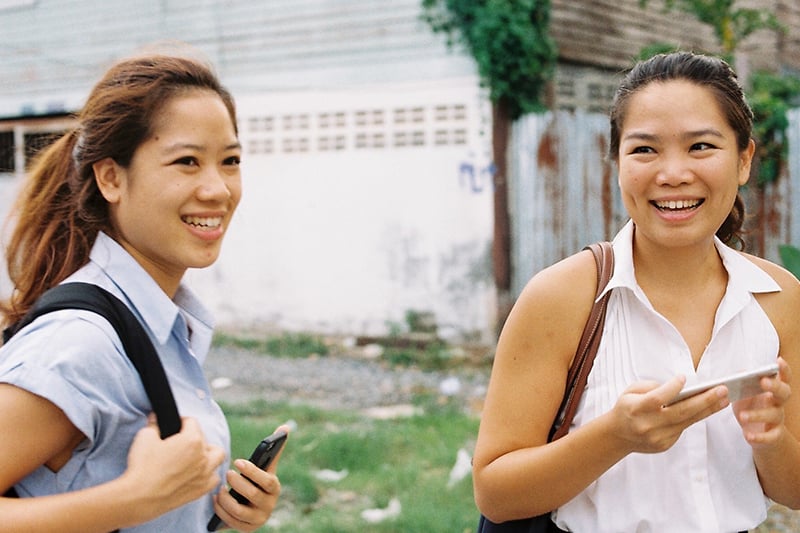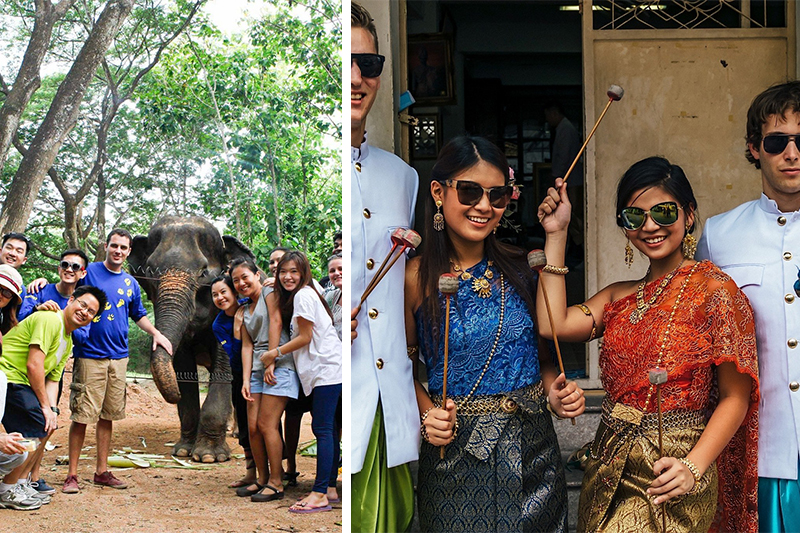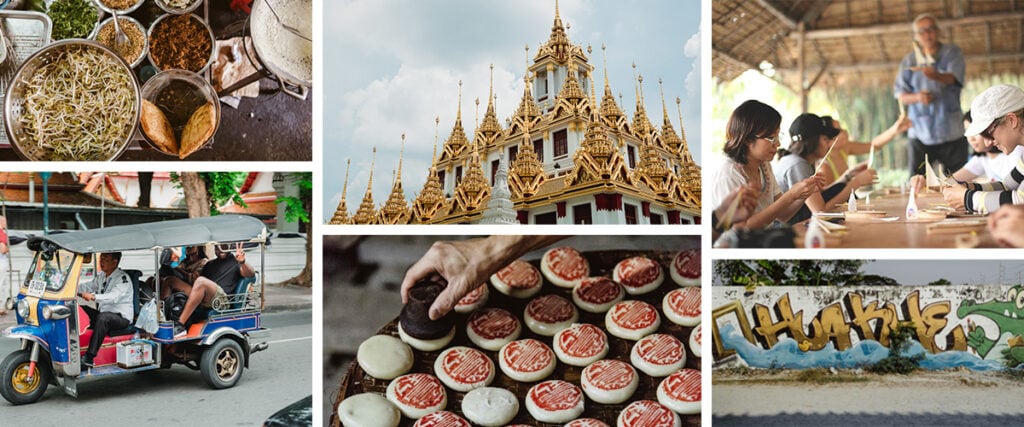Two sisters in Bangkok launched HiveSters to empower and protect local communities whilst giving travellers the opportunity to experience a Thailand they didn’t know existed.
Local communities in Thailand may not be at the top of your average international tourist sightseeing list, but still, they are the ones facing the indirect threats and effects from the emergence of urban tourism in Bangkok. Determined to swing the balance back in the former’s favour, sisters Achiraya (Achi) and Chayanich (Mint) Thamparipattra launched their travel business HiveSters to afford these communities a better income, preserve their heritage and shine a light on their accomplishments. In doing so, they’re also providing visitors with experiences that dig deep into Thailand’s authentic and now, often hidden, roots. “Our mission is to share real Thai travel experiences and make a sustainable impact on Thailand’s tourism industry. We are the next generation and we want to create a direct impact on the locals,” explains Achiraya. Here, she tells us how and why.

With a family in the travel business, Achiraya and Chayanich had the right complimentary skill sets to launch HiveSters. Achiraya had worked as an Assistant Brand Manager at Unilever for almost five years before furthering her studies in International Luxury Brand Management at ESSEC Business School in Paris and then returning to Thailand to help with the family travel business. “I was eager to start a new career after working in international organisations and I knew I wanted to become an entrepreneur and follow my parents’ footsteps in the travel industry,” she explains. That experience, coupled with Chayanich’s background in human and labour rights at the United Nations, made them perfectly placed to launch a business back in 2014 that’s as much a social enterprise as it is a tourism endeavour.
HiveSters was born with the specific aim of securing profitable work for local communities by connecting them with the tourist industry – and quickly, people took notice. Still, getting their venture off the ground wasn’t easy. While your average fixer tends to take one to two days to compile an itinerary, the sisters can spend up to four to five months securing a travel experience that is meaningful from top to bottom. “We are a social enterprise and we have to make sure that we create activities that will help artisans develop their skills as well,” explains Achiraya. “The main challenge is how to scale faster whilst keeping the quality and creating an impact in local communities.”

Through various partnerships with groups such as the Tourism Authority of Thailand and the Bangkok Metropolitan Tourism Division, HiveSters has managed to involve communities with cultures and traditions that were on the verge of disappearing. This year, they collaborated with the United Nations Development Program (UNDP) on a project called ‘APPEAR,’ connecting travellers with six quickly disappearing communities in an attempt to make them ‘appear’ again. Through it, leading urban hotels are matched with disappearing communities in Bangkok to form an ‘Alliance of Good Neighbours,’ that connects them with each other. A popular destination is Nang Loeng, a hidden gem nestled in the centre of Bangkok that’s home to a century-old market for rare Thai food and Thailand’s first wooden movie theatre Sala Chaloem Thani. Achiraya explains, “Travellers get to visit stalls and markets that have been open for over 50 years and this provides a different experience from going to Chinatown.” They can also stop by Aunt Hong Thai Desserts, an ancient sweet shop that has been open since the Second World War.
Now, HiveSters is working on a new project, ‘Green Destination,’ that will launch in three months. The purpose of this is to bring travellers to Sukhothai, Phitsanulok and Phetchabun provinces. “These destinations are already famous, especially Sukhothai, as it is a UNESCO heritage site. However, there are many interesting activities that travellers don’t know about. For example, travellers can learn how to make Sukhothai signature noodles with Auntie who has been doing it for over 20 years.”
Before HiveSters started, artisans in these communities were earning up to five euros per day. Now they earn at least 13 times that as HiveSters works with them to help secure a reliable income. “We teach them how to understand travellers, provide excellent services and the art of storytelling. During the capacity training, villagers also learn how to do cost calculations and pricing calculations. The skills in these areas that they had at the outset might have been at zero but, through the years, they have surely increased to at least ten.” HiveSters also hire and train them to lead travel activities and teach tourists crafts such as cooking, art and dance. “We work mostly with women,” says Achiraya. “Therefore, not only can they support themselves but they can also support their sons and daughters. It is the feeling of pride that is shared within the community and bringing people’s smiles and self-worth back, that’s the most rewarding feeling.” And it’s a feeling that works both ways. “If you can travel then you can also create an impact,” says the dedicated entrepreneur. “We only have one life, live it.”
Related Articles
10 Best Hiking Trails Near Bangkok, Thailand




